No, I didn’t see that coming either. But since the preferences of elite opinion-makers seem to be taking it on the chin around the world, perhaps we shouldn’t have been so surprised.
From the perhaps insulated vantage-point of a country where EU membership will never be the remotest question so long as recorded history continues, may I offer a bit of perspective?
First off, I’ve been reading the widely reported “shell-shocked” reactions of many City law firm leaders (as one put it) and the universal theme is one of great uncertainty with:
- “An enormous amount of work to do …. While the result of the vote is clear, the process it has now committed the country to is not. The timing of negotiations, their shape and format, the extent to which the exit and new agreements can be discussed side-by-side; all of this is still to be clarified as the dust settles” (Lord Goldsmith QC, a former Attorney General for England and Wales and now London co-managing partner at Debevoise & Plimpton)
- “Significant regulatory and legal implications,” “[giving rise to] the biggest legislative and regulatory program that this country has ever seen” (Norton Rose Fulbright global competition head Martin Coleman)
- “There may be legal issues and litigation surrounding any Brexit clauses in contracts. … . Then at some point there’s the usual litigation associated with economic shock which we have seen overnight.” (Hogan Lovells disputes partner Charles Brasted)
- “an upsurge in client queries and questions into what this means and (potentially) deal opportunities for those who seek deal opportunities created by the uncertainty. You can imagine dispute-orientated work may increase alongside regulatory.” (Oliver Brettle, White & Case London executive partner)
- “Already we are advising our clients on the review of business-critical contracts. Agreements which specifically reference the EU as the territory governed by the contract may lack clarity. There may also be ambiguity around how the impact of tariffs will be shared. The sooner amendments can be agreed or terms negotiated, the more businesses can increase their sense of certainty.” (Pinsent Masons partner Guy Lougher).
Call me simple-minded, but doesn’t this sound like a tremendous spike in demand for lawyers? Or, as Arnie Jacobs, my great mentor in corporate and securities law when I was an impossibly young associate, put it a few years ago when I asked him what he thought of the complexities introduced by Dodd-Frank: “It’s grrreeeaaat!”
A bit more perspective, now from the advantaged posture of outside observer.
Thanks to the Channel and its profound ramifications throughout history, Britain has never been “of” Europe in any way like the nations on the Continent. Its orientation has for centuries been more outward, more maritime, first Atlantic and then global and with, frankly, a continuous and strong strain of Euro-skepticism.
The ever-insightful Stratfor has understandably, if somewhat uncharitably, characterized Great Britain’s long-term self-interest vis-a-vis the Continent as ensuring that the Continent remains essentially divided and without a dominant hegemon. I’m a sworn enemy of conspiracy theories, but I have yet to hear an informed observer opine that Brexit strengthens the EU as an integrated polis.
But let’s leave the politics immediately behind; that’s for others who, bless them, have spent their lives in those milieus. No sum you can imagine would persuade me to follow into those precincts.
Some concluding facts and a thought experiment:
- English and UK law (and for that matter US and New York law) have not been repealed or compromised one jot; if they were the lingua franca for global deals yesterday morning, so will they be tonight.
- London, with New York and [Hong Kong/Singapore/Shanghai] is an unrivalled financial and capital markets center playing on a global stage. Talent, infrastructure, world-view, and ways of life required to support such a center cannot be recreated or transplanted on any time scale short of generations.
- Much talk has been and will be spilled over whether the UK needs the EU more or vice versa. Preposterous and unanswerable question: They need each other, as they are what in some sense economists would characterize as a “bilateral monopoly” (or at least “bilateral highly concentrated industries”). Far more will be gained by cooperating than throwing fits of pique, and models are ready to hand for how non-EU nations (Norway, Switzerland, the US for that matter) can establish profitable and mutually self-sustaining relations.
- If you doubt the last point, ask yourself whether you would rather be the fifth largest economy in the world, with a fundamentally dynamic and global business orientation, birthplace of the Industrial Revolution, the Enlightenment, and Magna Carta, a magnet for talent and investment; or a sclerotically regulated, internally riven, delusionally democratic, structurally incoherent jumble divided by millennia of language, history, tradition and culture, with baked-in demographic challenges galore and no clear forward or reverse gear. (Have I made my view clear?)
Finally, the thought experiment: Static analysis is always fallacious. Dynamic analysis can be wrong but at least it gives you a prayer. Static analysis is, “If this, then that. Period.” Dynamic analysis is, “If this, then probably that, in which case this other thing, which could prompt that party to do X, calling forth responses Y and Z, ….”
In other words, individuals, nations, corporations, and even law firms, have agency, have choice, and can respond in imaginative, creative, and (yes) competitive ways to help the future unfold in ways unforeseen and unimagined. “Leave” will quickly find they have waved no magic wand, and “Remain” may find their core principles can still be vindicated. May I leave you on a jocular note? We could all perhaps use a bit of levity right now.
From the cult classic movie, Animal House:
To quote the then-future U.S. Senator John Blutarski, “It not over until we say it is. Was it over when the Germans bombed Pearl Harbor?”
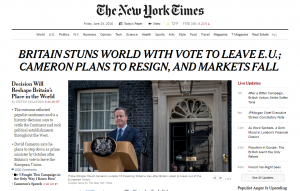 |
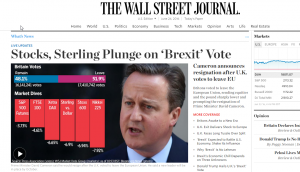 |
|---|---|
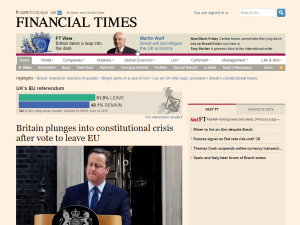 |
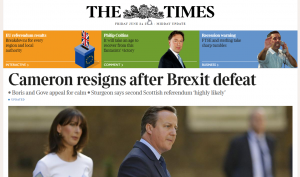 |
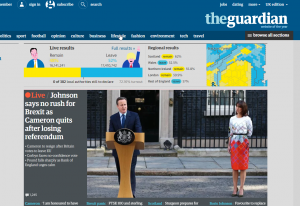 |
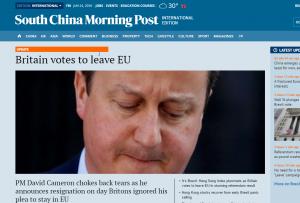 |


